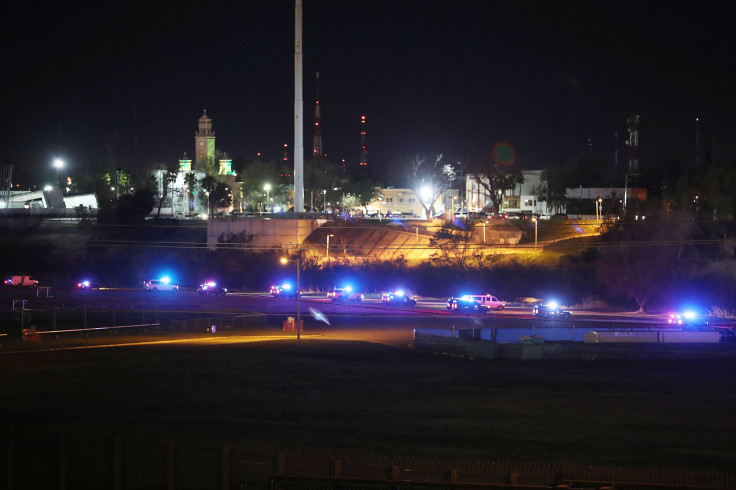Migrant Caravan Update: Law Enforcement Waits At Texas Border

Texas law enforcement and Border Patrol agents have been dispatched to the U.S.-Mexican border in response to a migrant caravan of over 1,800 members who are now being detained in an unused factory plant outside of Piedras Negras, Mexico.
The caravan, which was first reported to be made up of 1,600 Central American migrants, has been detained at the empty facility since Monday. A fleet of 49 vehicles, made up of busses and one sprinter van, made its way to the border with the hopes of crossing over into American soil but were intercepted miles away from the Rio Grande by Mexican authorities.
In anticipation of the caravan, Republican Texas Gov. Greg Abbott sent roughly 500 officers from the department of public safety to nearby Eagle Pass, Texas, to await them.
An additional 250 active-duty troops were also dispatched, which included medical personnel and military law enforcement. According to the San Antonio Express-News, many of these Border Patrol were equipped with tear gas, which they fired onto members of the caravan who attempted to scale the 12-foot fences at the factory and flee to the U.S.
While local government officials from Coahuila state, where Piedras Negras is located, organized transportation to extradite the detained migrants back to their points of origin, with many coming from as far as Honduras, the caravan members have been kept at the plant facility.
“Coahuila, Saltillo and Piedras Negras arranged for the buses. Their leaders had all met on Saturday in Saltillo, and came up with a plan,” said Coahuila state spokesman José Gabriel Borrego, referencing the detention.
As the Express-News also noted, a sign reading “Albergue Migrantes,” Spanish for the term “Migrant Shelter,” has been hung on the fence containing the asylum-seekers.
The newspaper also reported on minimal conditions, with people divided between gender and age into long sleeping rooms lined with foam mattresses.
“We’re prisoners. We can’t get out. We didn’t expect this,” Raul Artaga, a 22-year-old Honduran migrant, told Express-News reporters. “We crossed at Chiapas. It took us 22 days to get here. We’re poor. There is no work in Honduras. I want to work in the United States.”
Despite descriptions of bare conditions, Mexican officials have stressed that they are providing for the detainees.
“The governor said he would guarantee the safety and human rights of the people, and that they would have food and the basic necessities,” Borrego said.
Those who wish to still be granted entry to the U.S. have been told by Mexican authorities to wait for humanitarian visitor visas. Despite this allowance, acquiring one is hardly a guarantee: U.S. border officials process only 12 to 15 visas per day on average according to some reports, and are known to turn away asylum-seekers regularly.
Eagle Pass’ Port Director Paul Del Rincon told CNN that their local port of entry processes as many as 16 to 20 per day.
The limited daily number of visas processed reflects restrictions set by the Trump administration, which many consider an effort to curb immigration and in effect bolster the anti-immigration attitudes of President Trump himself.
White House administration policies go hand-in-hand with Trump’s seemingly endless efforts to secure funding for a border wall, which prompted a 35-day government shutdown after Democrats refused to sign off on a proposed $5.7 billion. As another deadline looms for the government spending budget on Feb. 15, negotiations between the GOP and Democrats are ongoing.
© Copyright IBTimes 2024. All rights reserved.











